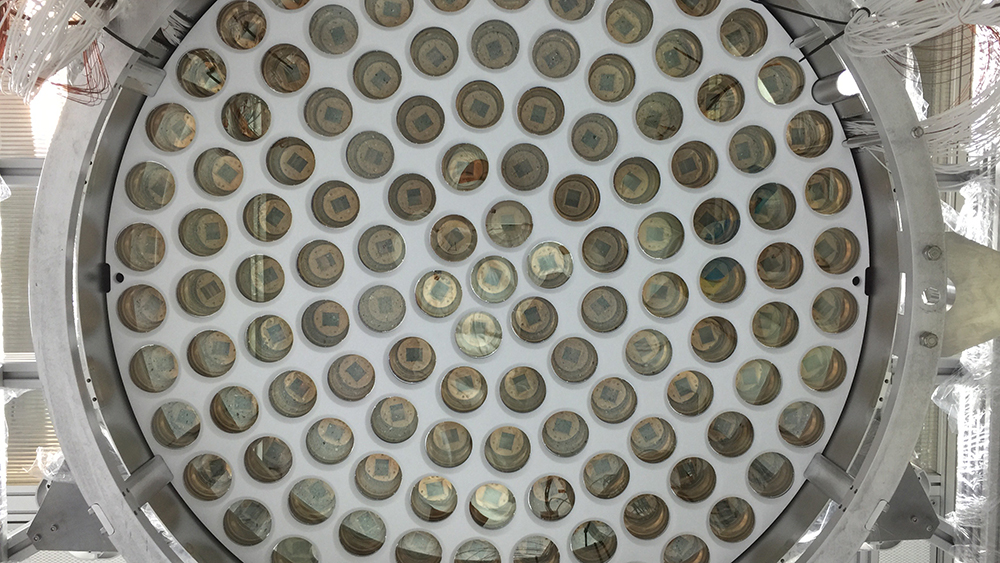XENON - measurement of slowest radioactive decay
The XENON experiment measured the extremely rare decay of Xenon-124 with a half-life of 1.8 ·1022 years.

The underground laboratory LNGS (Laboratori Nazionali del Gran Sasso) is located about 1500 meters deep in the Italian Gran Sasso mountains. Here, shielded from any radioactivity scientists search for signs of Dark Matter particles. For this they use the so-called XENON1T detector, the heart of which is a cylindrical tank about one meter in size, filled with 3200 kilograms of liquid xenon at a temperature of -95 degrees Celsius.
With this detector, the researchers with significant participation from the UZH research group of Laura Baudis have succeeded for the first time in observing the decay of the atom Xenon-124. The half-life measured is more than a trillion times longer than the age of the universe, which has existed for about 14 billion years. The observed process is thus the rarest process in the universe ever directly detected in a detector. "The fact that we succeeded in directly observing this process impressively demonstrates the potential of our measuring method - even for rare physical phenomena that do not originate from dark matter," says Laura Baudis.
Publication: Nature Volume 568 Issue 7753, 25 April 2019